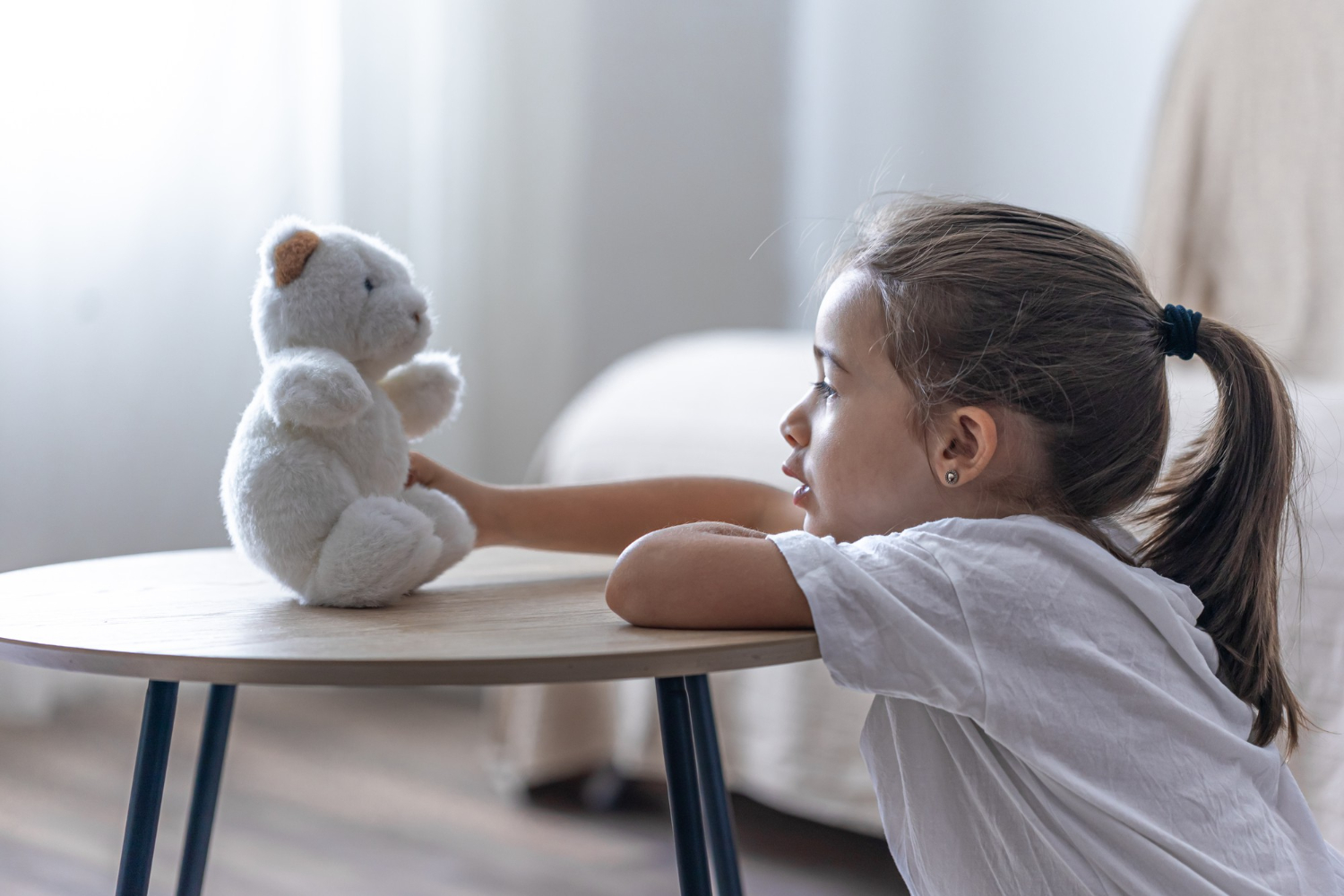
What is Anger Management Therapy: Control your anger before you lose everyone around you
February 11, 2024
Obsessive compulsive disorder treatment: It’s time for a better life
March 19, 2024Kids' depression: Can we help our children avoid it?

Does my child suffer from kids’ depression? Or am I imagining?
Mood swings in children are normal, but there is a segment of children who feel uncomfortable for long periods of time, which may reach weeks. This feeling of discomfort and fussiness is one of the dangerous indicators that indicate that this child may be suffering from kids’ depression. Yes, children get depressed. They experience mood disturbances that make them sad, a state of sadness that directly interferes with their relationships and daily activities.
What is kids’ depression?
Depression in children is a mood disorder, as we mentioned before, that makes children feel sad, irritable, and perhaps hopeless. Although it is normal for children to experience mood swings, they most likely do not last for long periods, but when they do persist, we must be aware that This is a danger indicator, because it is not usual or normal for children to feel sad for long periods of time, or to be upset all the time, even if the kid had a bad grade on a test or a disagreement with a friend. A child can feel sad for a while but quickly returns to normal.
But kids’ depression is different. A child who suffers from depression will live in a continuous state of sadness for more than two weeks. He may suffer from a state of agitation or despair. His appetite, sleep, and relationships with others will be affected. He will not be able to enjoy anything, whether going to school, meeting friends, or practicing hobbies. Which he loved and enjoyed before, and unfortunately there are severe cases in which the child may begin to think suicidal thoughts.
What is the main cause of depression in kids?
There is no single reason that we can say is the secret to kids’ depression. The reasons are multiple. There are some children who suffer from premenstrual depression, and this condition often occurs before your daughter’s first menstrual period occurs, and at this time the child develops symptoms of depression and anxiety. This condition may begin at least a week before menstruation, and the child becomes increasingly disturbed by the cramps she feels, physical pain, breast pain, and a feeling of exhaustion.
There is also seasonal affective disorder, which occurs with the change of seasons. It is common for people – even adults – to suffer from it during the cold and dark winter months, but this type of disorder can occur in any other season.
There are also disturbed mood swings, and children suffer from this condition with a number of disturbing symptoms, such as recurring outbursts of anger that may not be appropriate for their age, or the child becomes aggressive, whether physically or verbally, or attacks the parents or one of them, and only children over the age of six are exposed to this condition.
Genetic factors also play a significant role in a child suffering from depression. If a first-degree relative suffers from depression, it is likely that the child will suffer from it as well.
The environment in which the child lives is one of the most prominent causes of depression. Constant problems between the father and mother, separation, divorce, and the death of the father or mother are all causes that lead to depression.
Being bullied is also one of the causes of depression, as bullying is a painful experience that can hurt a child very deeply.
When do signs of depression appear in children?
From the previous point, we cannot determine a specific age for the onset of depression, as the matter varies from one child to another and from life circumstances to other life circumstances, and therefore we must focus with children at all times and ages, because the causes are different, but the result is the same and it must be addressed as quickly as possible before it turns into a depression.
Symptoms of depression in children
Child depression is different from adult depression, and the most important symptoms of kids depression are:
1- Mood changes. The child seems sadder or more nervous than usual, and he remains in this state most of the time.
2- Loss of interest in recreational activities. The child does not find pleasure in the things he used to enjoy.
3- The child’s energy level decreases, and he constantly feels tired and exhausted.
4- Negative conversations, especially about self-expression, and the child’s low self-esteem. The child may begin to describe himself in negative things, and begin to feel that he has no value.
5- Appetite changes. Here we mean that the eating pattern changes. Either the child eats large quantities, or loses his appetite completely.
6- Sleep problems: Here too, we find the child sleeping for very long periods of time, or suffering from insomnia and an inability to sleep.
We cannot talk about symptoms without addressing the risks of depression. Unfortunately, children with depression are more susceptible to anxiety disorders, and they may try drugs, and suicidal thoughts may occur to them.
Treating kids depression
Well, before rushing and jumping to the conclusion that the child suffers from depression, you must go to a pediatrician, a doctor who can rule out all organic diseases that may cause the child to suffer from the symptoms that we previously talked about. Some organic diseases can affect your child’s appetite, sleep, and… His activity rate and desire to move and exert effort, and therefore the doctor must rule out diseases related to:
1- Anemia.
2- Concussion.
3- Diabetes.
4- Epilepsy.
5- Hypothyroidism or hyperthyroidism.
6- White blood cell count.
7- Finally, vitamin D deficiency.
If mood changes are not linked to previous physical conditions, you must go to a psychiatrist or mental health specialist to diagnose the condition and provide the necessary assistance.
There are two basic ways to treat childhood depression: The first is behavioral therapy, which is called talk therapy, in which the child learns to think better, express better, and change his negative thoughts to positive ones. Through this type of therapy, the child is able to learn coping skills and relaxation techniques.
There are also prescription drugs such as antidepressants, which are selective serotonin reuptake inhibitor drugs, and these drugs increase the level of serotonin in the brain. Serotonin is the chemical responsible for increasing feelings of happiness and well-being.
Although cognitive behavioral therapy is integrated with medical drugs, you must be fully aware of the side effects of these drugs and pay close attention to the doses that the doctor prescribes, and observe whether the child improves with these drugs or needs to change them, because some drugs may not work, For some people, it may exacerbate the problem instead of solving it.
You should also be aware that depression treatment drugs take a long time to have an effect, a period that may range from four to six weeks to begin working, and again the effect varies from person to person and from one case to another.
Can children be protected from depression?
A frequently asked question, and the answer is yes. Depression can develop as a result of the accumulation of certain situations, and it may be due to pressures in the child’s life, and here you can help, by making sure to:
* Exercise the child on a daily basis, even if it is by walking or running for half an hour daily.
* Providing a safe and supportive environment both at home and at school.
* Make sure to eat balanced meals and get enough sleep.
And remember that although treating childhood depression takes time, in the end it achieves the goal, reduces symptoms and restores the child’s ability to live a normal life and practice his daily activities.




